ARTICLE AD BOX

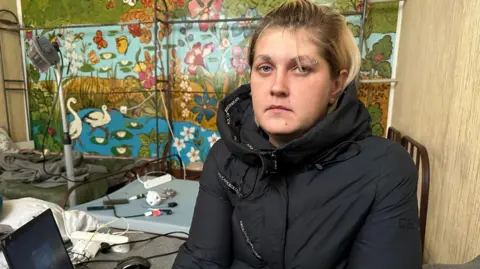 BBC/Joe Phua
BBC/Joe Phua
Anastasiia Bolvihina fled the besieged city of Pokrovsk with her two sons
As the Russian army slowly advances in eastern Ukraine, it’s driving a tide of human suffering before it.
With two months to go before a change of administration in Washington, Ukraine is wrestling with two problems: how to stem the advance, and how to prepare for Donald Trump.
At a shelter in Pavlohrad, about 60 miles (100km) west of the slowly shifting front line, evacuees are constantly arriving from villages and towns overtaken by the war.
Anastasiia Bolvihina, 31, is there with her two sons, Arseniy and Rostyslav. The family cat lies sleeping among the few belongings the family have managed to bring with them from the village of Uspenivka, just outside the besieged city of Pokrovsk.
The family hung on in their house as long as they could, but with explosions all around, shops closed and roads cut off one by one, they finally bowed to the inevitable. They packed up a few bags, locked the door and left.
“We hoped the war would pass us and end soon,” Anastasiia tells me.
Now, after two months without electricity or the internet, she has her laptop open on the bed and is catching up with the news.
“We hope things will be better and the war will end,” she replies when I ask about political changes far away in the US.
“I hope the new president will be better than the current one.”

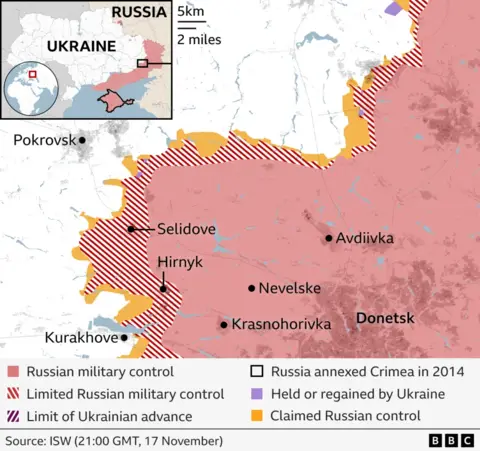
In an adjacent auditorium, dimly lit and warmed by a single bar heater, elderly evacuees are being looked after by volunteers.
It’s a theatre of misery, with still, exhausted figures sitting or lying on camp beds, some apparently lost in thought
83-year-old Kateryna Klymko, from Sukhi Yaly near Kurakhove – another town slowly being overrun by the Russians – has just arrived.
She briefly sobs as she describes how her house burned down, with all her possessions.
“They bombed so much,” she says of the advancing Russian army. “It’s like the last judgement!”
Could Ukraine still win, I ask?
“God only knows,” she sighs. “My heart aches from what I hear. We were bombed so much and so many people died there.”
Russia launched an enormous ballistic missile strike on Dnipro overnight too. It was felt across the city and sent everyone including the BBC team to bomb shelters.
The Biden administration’s latest decisions on Atacms and land mines are clearly designed to help Ukraine hold on to territory, both its own and in the Kursk region of Russia.
Both could feature in negotiations next year, if that’s the path Donald Trump intends to pursue.
So far, the US president-elect has given very few clues as to how he intends to end the conflict, beyond a typically vainglorious promise to end the war in 24 hours.
Ukrainian politicians, from President Zelensky on down, seem keen to give Trump the benefit of the doubt.
“I think he has taken a very smart approach,” former foreign minister Dmytro Kuleba told me, “by clearly setting out the goal – ‘I’m going to fix it’ – but without getting into details.”
Despite Trump’s reputation – a zero-sum deal-maker with a curious admiration for Vladimir Putin – Dmytro Kuleba says people tend to oversimplify him.
“He can hold a bigger picture in his head, and I’m sure it will not be simply transactional.”
As the new administration is assembled and minds start to turn to how to realise Trump’s ambition, the former foreign minister believes one overriding factor will drive policy.
“President Trump will undoubtedly be driven by one goal, to project his strength, his leadership,” he said. “And show that he is capable of fixing problems which his predecessor failed to fix.”
Projecting strength, Kuleba believes, will mean leaning on both sides.
Walking away from Ukraine, he says, is not an option.

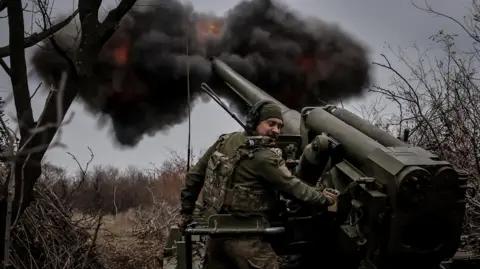 Reuters
Reuters
Without US military aid, President Zelensky fears Ukraine would fall to Russia
“As much as the fall of Afghanistan inflicted a severe wound on the foreign policy reputation of the Biden administration, if the scenario you mentioned is to be entertained by President Trump, Ukraine will become his Afghanistan, with equal consequences.
“And I don’t think this is what he’s looking for.”
Last weekend, President Zelensky said Kyiv would like to end the war through “diplomatic means” in 2025.
The war, he said, would end “sooner” with Trump in the White House.
It was classic Zelensky: part flattery, part challenge.
Among many of those who have paid the heaviest price for Russia’s invasion, peace cannot come soon enough, even if that means further sacrifices.
In Dnipro, a steady stream of injured soldiers comes through the doors of one of the country’s many prosthetic centres.
Demian Dudlya, 27, lost a leg when his unit came under missile attack 18 months ago.
He’s already used to his carbon fibre limb and is even training for next year’s Invictus Games. But when it comes to the war, he’s less optimistic.
“I think most likely two regions [Donetsk and Luhansk] will be taken from us, and Crimea,” he says.
“I am not confident we will push them back from those regions. We have neither people nor weapons.”

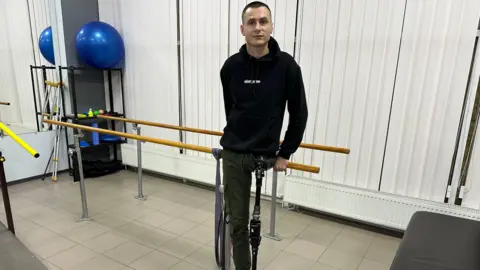 BBC/Joe Phua
BBC/Joe Phua
Demian lost his leg in a Russian missile attack in 2023
Opinion polls paint a mixed picture but show that more and more Ukrainians want this war to end, soon. Especially here in the east, where the sirens sound several times a day.
A growing minority say they’re willing to give up territory to secure peace.
“I think that the end of the war will happen, says 28-year-old Andrii Petrenko, when I ask him what he expects when Donald Trump takes office.
Andrii is being fitted with his first prosthetic, after losing a leg three months ago.
“Either they will agree and go to the 1991 borders, or the territories will be surrendered. The main thing is that the war ends and people stop dying.”

 1 month ago
9
1 month ago
9
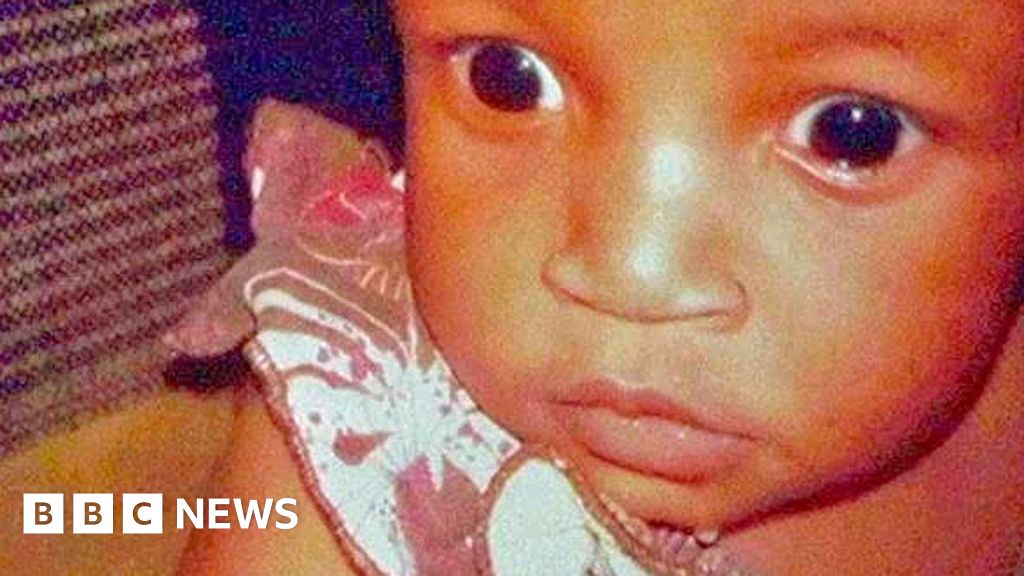
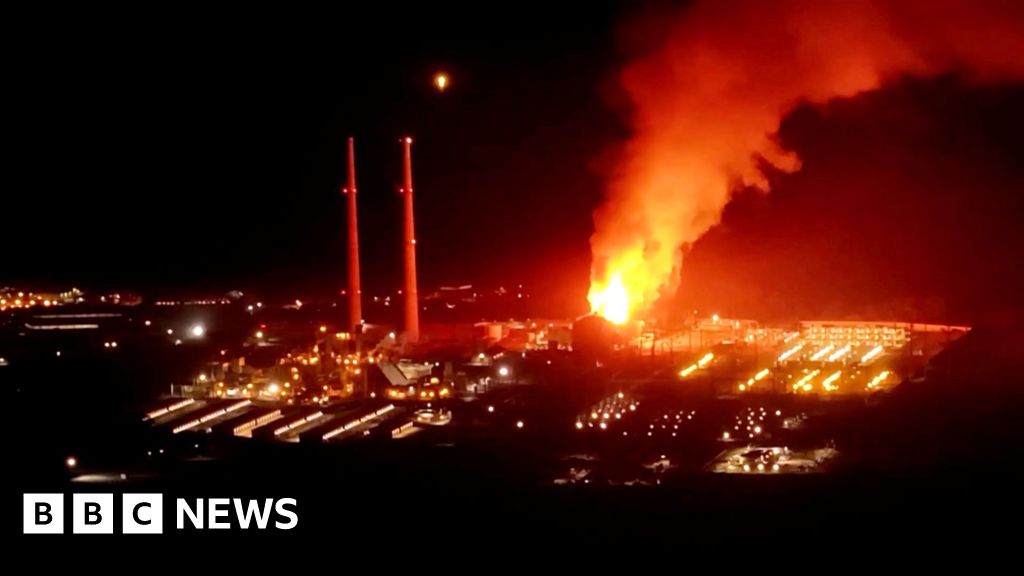
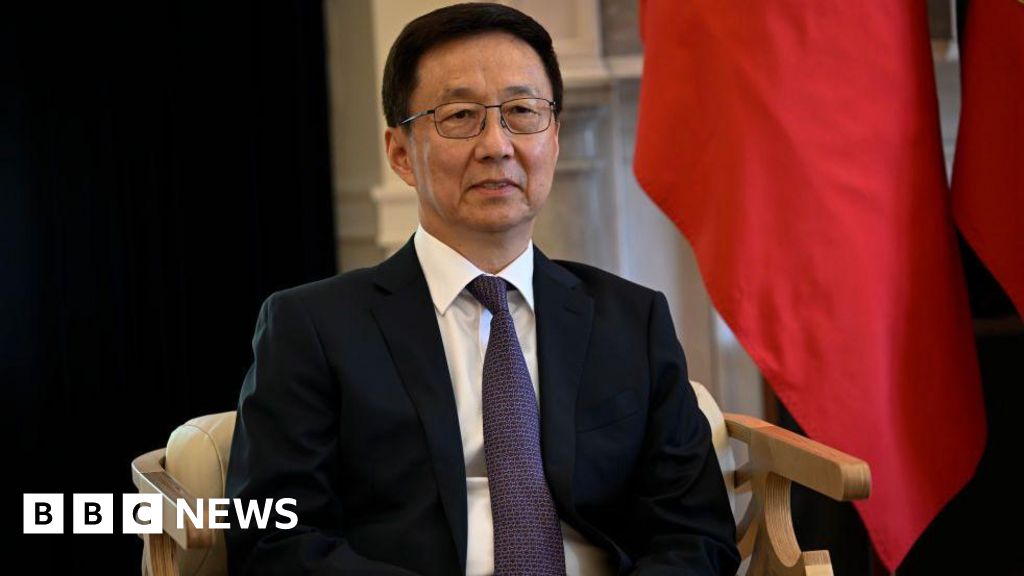





 English (US) ·
English (US) ·